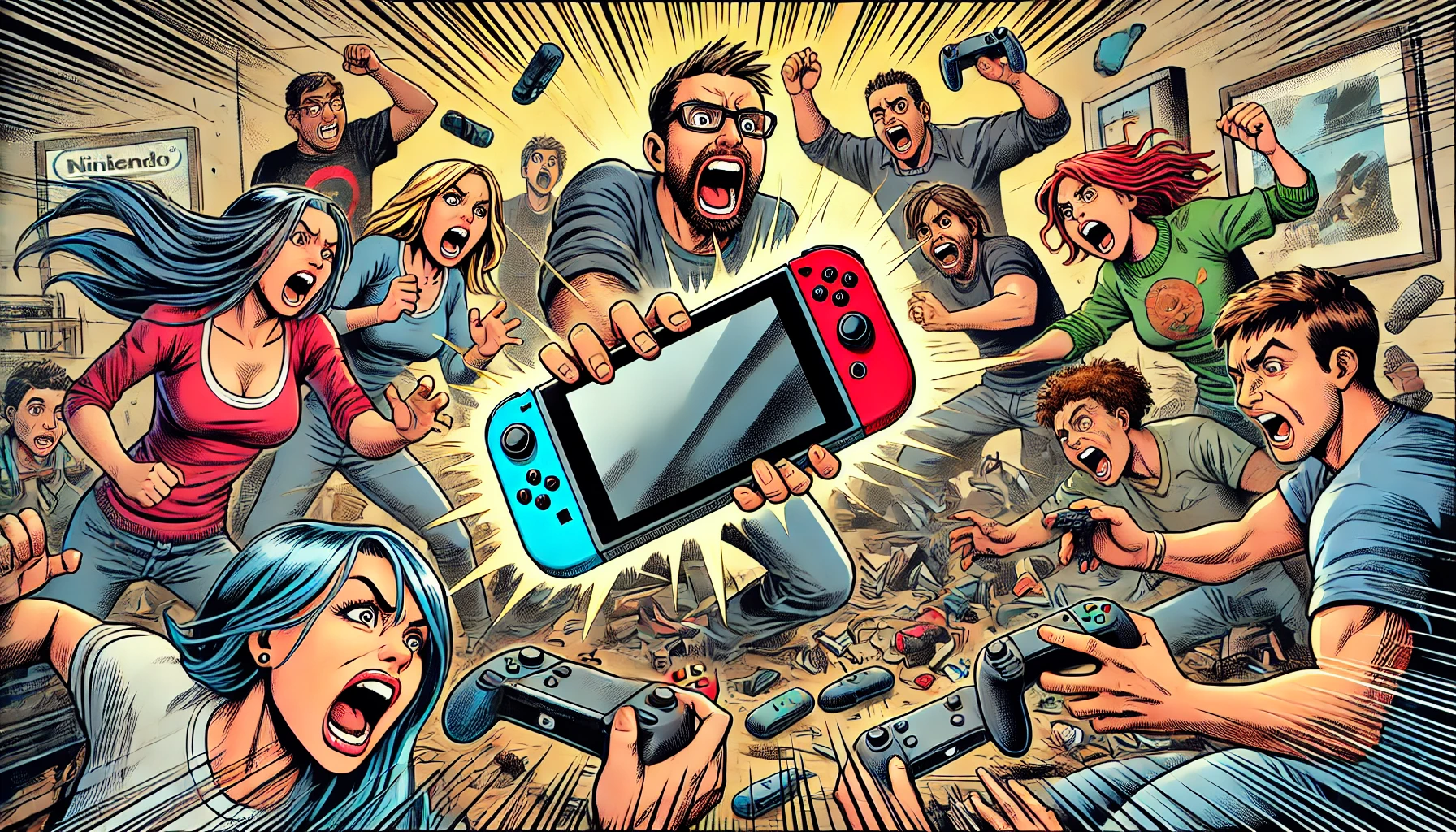
In June 2025, Nintendo launched its long-awaited Switch 2. Within just four days, the console had already surpassed 3.5 million units sold globally. But beneath the headlines was a fascinating contrast: while Americans scrambled to pre-order in a first-come, first-served frenzy, Japanese fans had to enter a lottery—sometimes four rounds deep—just to get a chance at purchasing the console.
This was no accident.
A recent study from Osaka University’s ELSI Center carefully compared the two strategies and uncovered five cultural and ethical reasons for the divide. You can read the full report here:
👉 Nintendo Switch 2 発売戦略の日米比較(Osaka University, ELSI NOTE No.55)
🎯 Same Console, Different Worlds
Both Japan and the U.S. had more demand than supply. But Nintendo took two radically different approaches:
- 🇯🇵 Japan: Lottery-based pre-orders via My Nintendo Store and major retailers
- 🇺🇸 United States: First-come, first-served pre-orders online
Why did Nintendo split strategies? The researchers present five hypotheses:
- Operational efficiency
- Reputation management
- Definitions of fairness
- Corporate responsibility expectations
- Fan culture differences
Each highlights how deeply cultural values influence what we perceive as “fair.”
🔧 Hypothesis A: Was It Just Easier?
In the U.S., a fast and simple method like first-come, first-served made sense logistically. It required fewer resources and allowed Nintendo to avoid handling verification processes.
But in Japan, the company chose a lottery system—a costlier and more complex approach involving user vetting and strict participation rules. Why take on the extra effort?
Because in Japan, fairness and public trust matter more than speed.
💬 Hypothesis B: Managing Reputation
Nintendo doesn’t earn its biggest profits from hardware—it profits through games, online services, and long-term engagement. That means the customer relationship is more valuable than short-term efficiency.
In Japan, fairness is essential to corporate reputation. Nintendo imposed a surprising condition: players needed to have logged 50+ hours on the original Switch and held a Nintendo Online subscription for over a year. This shifted the distribution logic from willingness-to-pay to willingness-to-play 🎮.
It wasn’t about who had money. It was about who deserved the console as a fan.
⚖️ Hypothesis C: Competing Definitions of Fairness
Fairness doesn’t mean the same thing everywhere:
- In Japan, fairness is about procedural equality—everyone has the same chance, even if it’s random.
- In the U.S., fairness is about rewarding initiative—if you act fast, you deserve it.
This helps explain why Japan embraced the lottery, while U.S. consumers tolerated the chaos of online queues and website crashes.
🏛 Hypothesis D: What Do People Expect From Companies?
In Japan, there’s a strong expectation that companies like Nintendo will take the lead in maintaining market order.
Nintendo worked closely with major platforms (like Mercari and Rakuten) to stop scalping. Entry conditions were tight, reducing the chances of resale. Consumers expected the company to enforce this order.
In contrast, U.S. fans relied more on community-driven efforts—sharing tips on Reddit, flagging scalpers, and organizing Discord groups. The assumption is that consumers self-police, and companies are just the infrastructure.
🎉 Hypothesis E: Fan Culture Shaped the Launch
Japan’s quiet lines and orderly lotteries contrast sharply with the U.S.’s launch parties and chaotic scrambles.
- In New York, one fan lined up two months early outside the Nintendo store. He vlogged the entire experience.
- GameStop and others hosted midnight launch events that felt more like festivals than retail queues.
In Japan, lining up is a solemn, quiet ritual. In the U.S., it’s part of the fan experience. Both systems were accepted not because they were efficient—but because they matched the emotional expectations of the fan base.
🔄 Lessons for Global Business
This case study offers broader lessons beyond gaming:
- Consumer ethics are local: What’s “right” in Tokyo might be seen as unfair in Chicago.
- Trust vs. speed: Some markets prioritize fairness over efficiency.
- Secondary markets matter: In Japan, resale is seen as unethical; in the U.S., it’s often normalized.
Companies that can adapt ethically and culturally to local expectations—not just legally—will thrive in the global era.
✍️ Final Thoughts
Nintendo’s split approach for Switch 2 reveals a key truth: fairness is not universal. It’s culturally coded. The U.S. rewards hustle. Japan rewards order. Each strategy reflected those values—intentionally or not.
As more global launches unfold, we’ll see more companies needing to customize their ethics, not just their logistics. The future of fairness will be multilingual, multipolar, and maybe even multiplayer.
🕹️



















































